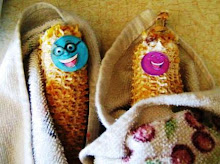PHOTOSYNTHESIS:
GROWING PUMPKINS:
1. The instrument with which a horse is governed and restrained by a rider; consisting of a head-stall, a bit, and reins, with other appendages, according to its particular form and uses.
2. A restraint; a curb; a check.
3. A short piece of cable well served, attached to a swivel on a chain, laid in a harbor, and the upper end drawn into a ship and secured to the bits. The use is to enable a ship, when moored, to veer with the wind and tide.
Bowline bridles are short legs or pieces of rope, running through iron thimbles, by which the bowline attaches to different places on the leech or edge of a large sail
BRI'DLE, v.t. To put on a bridle; as, to bridle a horse.
1. To restrain, guide or govern; to check, curb or control; as, to bridle the passions; "to bridle a muse."
Bridle the excursions of youth.
BRI'DLE, v.i. To hold up the head, and draw in the chin.
H`ARNESS, n.
1. Armor; the whole accouterments or equipments of a knight or horseman; originally perhaps defensive armor, but in a more modern and enlarged sense, the furniture of a military man, or offensive, as a casque, cuirass, helmet, girdle, sword, buckler, &c.
2. The furniture of a draught horse, whether for a wagon, coach, gig, chaise, &c., called in some of the American states, tackle or tackling, with which, in its primary sense, it is synonymous.
H`ARNESS, v.t. To dress in armor; to equip with armor for war, as a horseman.
Harnessed in rugged steel.
1. To put on the furniture of a horse for draught.
Harness the horses. Jer.46.
2. To defend; to equip or furnish for defense. 1 Macc.4.
MAKING HOMEMADE ICE CREAM:
HOW TO PICK OUT A RIPE WATERMELON:
RAISING PIGS:
FISH:
HOW TO MAKE EGGNOG:
HEART AND VASCULAR SYSTEM:
Heart Anatomy at Enchanted Learning
Heart Programs and Activities for Kids (American Heart Association)
Heart Lesson Plans at Education World
Grain Cradle
c. 1900
SELFISH:
SELF'ISH, a. Regarding one's own interest chiefly or soley; influenced in actions by a view to private advantage.HOW TO TREAT A BURN:
BELGIAN HORSE:












No comments:
Post a Comment